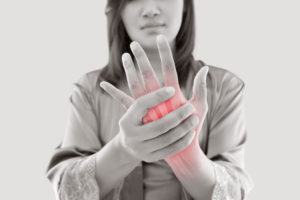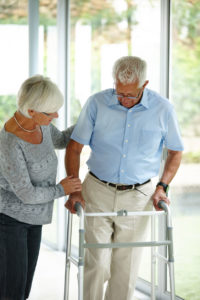Arthritis refers to inflammation or disease in one or more joints. The word comes from the Greek word “arthron,” meaning “joint,” and the suffix “-itis” which means “inflammation.” Symptoms of arthritis usually include joint pain, stiffness, swelling, and mobility/movement issues.
Over time, arthritis can wear down and damage the protective cartilage in the joints so that the movement of the joints is no longer smooth. Pain can develop that becomes chronic or debilitating, which then requires treatment.
Let’s talk about some of the noninvasive and minimally invasive treatments for arthritis and where you can find medical expertise to help you control the condition.
How Is Arthritis Treated?
Treatments for arthritis will begin with noninvasive modalities such as over-the-counter medication and therapeutic exercise, and the treatments will become more invasive if your arthritis becomes worse. These methods include the following:
Rest and Medication
In many cases, especially in the early stage, arthritis symptoms are relieved by rest, ice therapy, heat therapy, and anti-inflammatory medications. You may use assistive devices such as a splint or a cane to avoid stressing your joints and to provide extra support.
These conservative treatments usually provide much-needed relief from joint pain and stiffness. Your family medicine provider may give you a prescription that will provide more extensive relief from the pain and other symptoms.
Exercise and Physical Therapy
No treatment plan for arthritis is complete without physical therapy. This includes strengthening and stretching exercises which will have a direct effect on the joints that are affected by arthritis.
The strengthening exercises help reinforce the muscles around the arthritic joint to give it extra stability and support, so there is less stress and pressure on the joint. Low-impact exercise such as walking, dancing, yoga, and pilates can greatly benefit arthritis sufferers.
Dietary Modifications
Being overweight puts added stress on your joints, which can therefore cause you to develop arthritis because of the weight-bearing pressure wearing down the cartilage in your joints. By switching to a healthy diet, you will eventually shed pounds which eases pressure on your joints.
Additionally, certain foods have anti-inflammatory properties, such as fish rich in omega-3 fatty acids and fruits and vegetables such as oranges, papayas, berries, grapes, tangerines, carrots, bell peppers, and pumpkin. It is also a good idea to stay away from foods with processed sugar.
Viscosupplementation
If you do not experience a reduction in arthritis symptoms after including the abovementioned factors in your lifestyle, then you will likely respond well to viscosupplementation. During this minimally invasive procedure, the family medicine provider injects hyaluronic acid into the arthritic joint in order to reduce the symptoms of arthritis. This treatment helps to protect the bones in the joint from rubbing against each other by essentially fostering a cartilage-like supportive effect.
Acupuncture
Acupuncture is traditional Chinese medicine and has been used in the Far East for thousands of years for pain relief. This treatment involves inserting thin, hair-like needles into pressure points in order to promote healing and reduce pain and inflammation. Acupuncture is rarely a standalone treatment and is usually part of a comprehensive treatment plan for best results.
Arthritis Treatment in Wellington and Royal Palm Beach
Do not let arthritis limit your life. Here at Advanced Medical Clinic, our compassionate primary care providers offer you advanced and customized treatment options for your condition. We want to be your go-to family family medicine providers.
To schedule a consultation, call us today at (561) 434-1935 or request an appointment now via our online form. We look forward to helping you enjoy a pain-free lifestyle of health and wellness.





